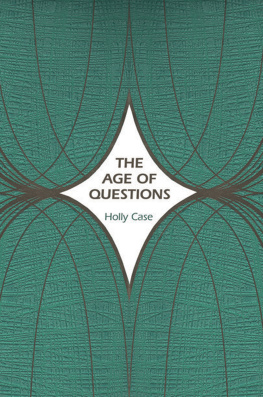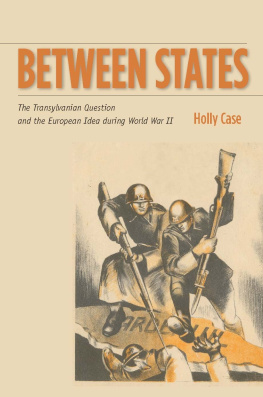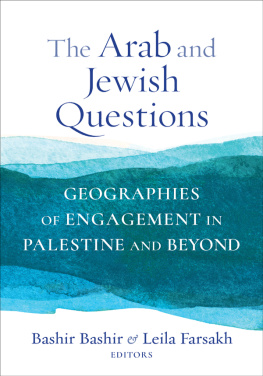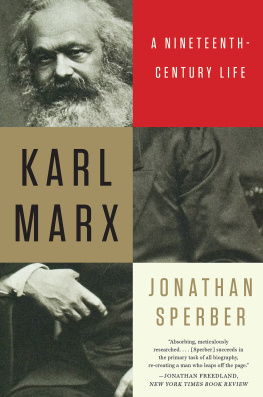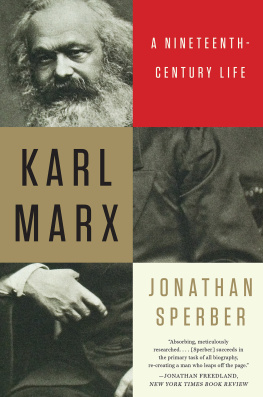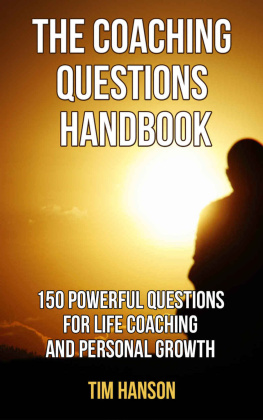Holly Case - The Age of Questions: Or, a First Attempt at an Aggregate History of the Eastern, Social, Woman, American, Jewish, Polish, Bullion, Tuberculosis, and Many Other Questions Over the Nineteenth Century,
Here you can read online Holly Case - The Age of Questions: Or, a First Attempt at an Aggregate History of the Eastern, Social, Woman, American, Jewish, Polish, Bullion, Tuberculosis, and Many Other Questions Over the Nineteenth Century, full text of the book (entire story) in english for free. Download pdf and epub, get meaning, cover and reviews about this ebook. year: 2018, publisher: Princeton University Press, genre: Art. Description of the work, (preface) as well as reviews are available. Best literature library LitArk.com created for fans of good reading and offers a wide selection of genres:
Romance novel
Science fiction
Adventure
Detective
Science
History
Home and family
Prose
Art
Politics
Computer
Non-fiction
Religion
Business
Children
Humor
Choose a favorite category and find really read worthwhile books. Enjoy immersion in the world of imagination, feel the emotions of the characters or learn something new for yourself, make an fascinating discovery.
- Book:The Age of Questions: Or, a First Attempt at an Aggregate History of the Eastern, Social, Woman, American, Jewish, Polish, Bullion, Tuberculosis, and Many Other Questions Over the Nineteenth Century,
- Author:
- Publisher:Princeton University Press
- Genre:
- Year:2018
- Rating:4 / 5
- Favourites:Add to favourites
- Your mark:
The Age of Questions: Or, a First Attempt at an Aggregate History of the Eastern, Social, Woman, American, Jewish, Polish, Bullion, Tuberculosis, and Many Other Questions Over the Nineteenth Century,: summary, description and annotation
We offer to read an annotation, description, summary or preface (depends on what the author of the book "The Age of Questions: Or, a First Attempt at an Aggregate History of the Eastern, Social, Woman, American, Jewish, Polish, Bullion, Tuberculosis, and Many Other Questions Over the Nineteenth Century," wrote himself). If you haven't found the necessary information about the book — write in the comments, we will try to find it.
In the early nineteenth century, a new age began: the age of questions. In the Eastern and Belgian questions, as much as in the slavery, worker, social, woman, and Jewish questions, contemporaries saw not interrogatives to be answered but problems to be solved. Alexis de Tocqueville, Victor Hugo, Karl Marx, Frederick Douglass, Fyodor Dostoevsky, Rosa Luxemburg, and Adolf Hitler were among the many who put their pens to the task.The Age of Questionsasks how the question form arose, what trajectory it followed, and why it provoked such feverish excitement for over a century. Was there a family resemblance between questions? Have they disappeared, or are they on the rise again in our time?
In this pioneering book, Holly Case undertakes a stunningly original analysis, presenting, chapter by chapter, seven distinct arguments and frameworks for understanding the age. She considers whether it was marked by a progressive quest for emancipation (of women, slaves, Jews, laborers, and others); a steady, inexorable march toward genocide and the Final Solution; or a movement toward federation and the dissolution of boundaries. Or was it simply a farce, a false frenzy dreamed up by publicists eager to sell subscriptions? As the arguments clash, patterns emerge and sharpen until the age reveals its full and peculiar nature.
Turning convention on its head with meticulous and astonishingly broad scholarship,The Age of Questionsilluminates how patterns of thinking move history.
Holly Case: author's other books
Who wrote The Age of Questions: Or, a First Attempt at an Aggregate History of the Eastern, Social, Woman, American, Jewish, Polish, Bullion, Tuberculosis, and Many Other Questions Over the Nineteenth Century,? Find out the surname, the name of the author of the book and a list of all author's works by series.

